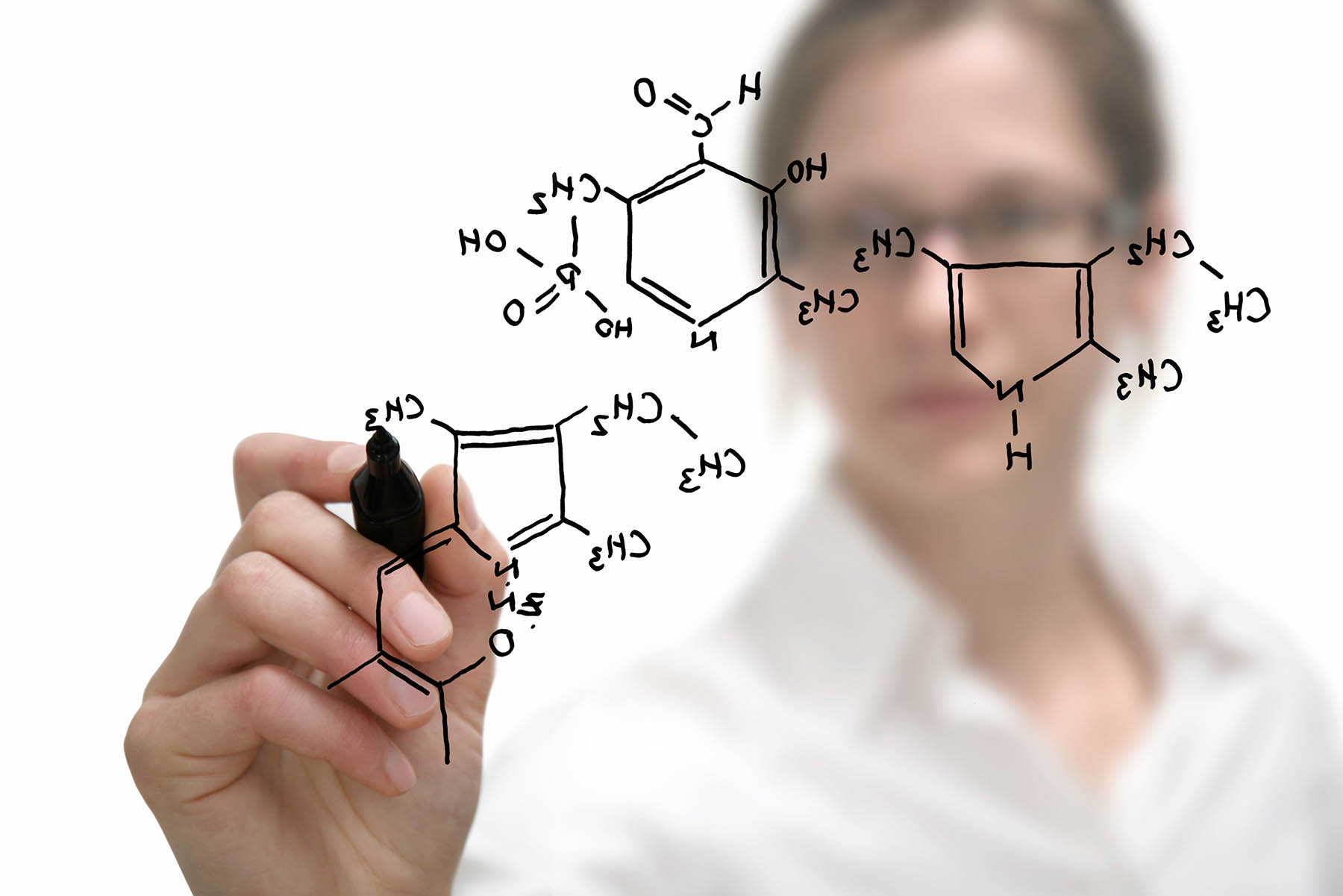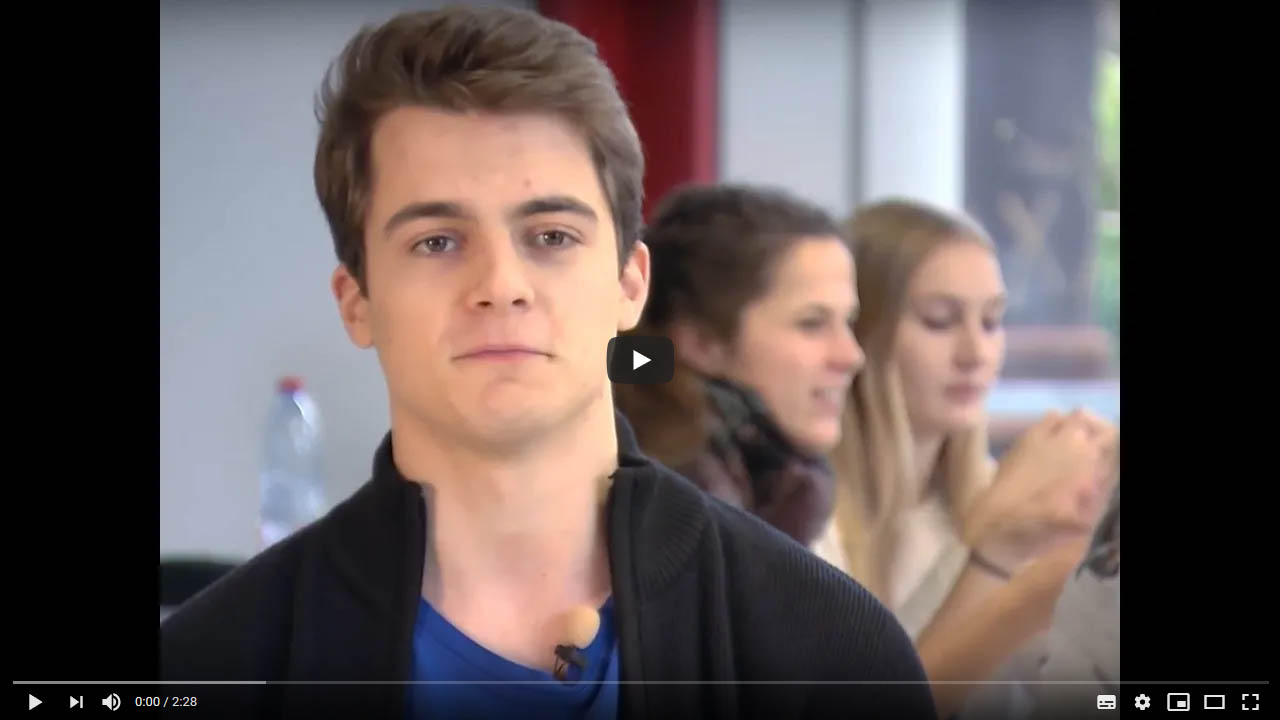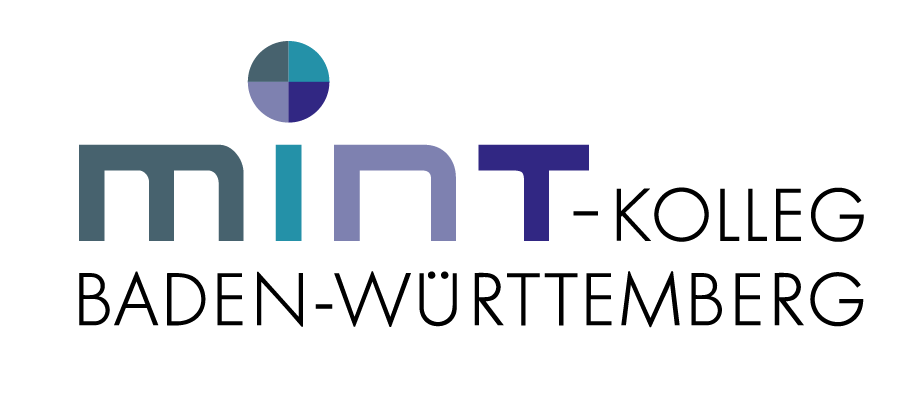Degree: Bachelor of Science (B.Sc.)
Regular program length: 6 semester (full-time program)
Credit points (ECTS): 180 credit points
Language of instruction: German
Higher semester: no
Higher semester: winter and summer term
First semester: July 15
Higher semester: September 15 for winter term, March 15 for summer term
First semester: July 15
Higher semester: July 15 for winter term, January 15 for summer term
Studiengangsbeschreibung
Worum geht's?
Im Studiengang Chemie tauchst du in die faszinierende Welt der Stoffe, ihrer Eigenschaften und ihrer Reaktionen ein. Du lernst, wie Atome und Moleküle aufgebaut sind, wie chemische Bindungen funktionieren und welche Mechanismen chemische Prozesse antreiben. Dein Bachelorstudium vermittelt dir die Grundlagen der anorganischen, organischen und physikalischen Chemie sowie der Analytik – die zentralen Disziplinen der Chemie.
Ein starker Fokus liegt auf der praktischen Arbeit im Labor. Hier setzt du die Theorie in die Praxis um: Du lernst, Experimente präzise zu planen und durchzuführen, mit modernen Analysegeräten zu arbeiten und die Ergebnisse systematisch auszuwerten. Dabei gewinnst du ein tiefes Verständnis dafür, wie chemische Erkenntnisse genutzt werden können, um innovative Lösungen für reale Probleme zu finden.
Chemie ist die Grundlage für viele Schlüsseltechnologien und bietet eine Vielzahl von Anwendungsmöglichkeiten, z. B. in der Pharmazie, der Materialwissenschaft oder der Umweltforschung. Wenn du Freude daran hast, naturwissenschaftliche Phänomene zu verstehen, analytisch zu denken und kreativ zu arbeiten, bietet dir dieses Studium die perfekte Grundlage für eine spannende Karriere.
Program structure
During your studies, you have various subjects, which consist of one or more modules. A module deals with a specific topic and consists of one or more courses. In the module handbook for your degree program, you will find a description of the modules and their subject assignment as well as a study plan. This gives you an orientation as to which courses you should attend in which semester in order to complete your studies within the standard period of study. It takes into account a balanced distribution of courses over the individual semesters. It also ensures that you are first taught the important basics before moving on to more advanced topics. Your individual course of study may differ from this.
Im Studiengang Chemie hast du diese Fächer:
- Grundlagen der Fächer Anorganische, Organische, Physikalische und Angewandte Chemie: Dieses Fach bildet die Basis des Chemiestudiums und vereint theoretisches Wissen mit praktischer Laborarbeit. Es umfasst die zentralen chemischen Disziplinen: Die Allgemeine und Anorganische Chemie behandeln die Eigenschaften und Reaktionen von Elementen und Verbindungen, während die Organische Chemie den Fokus auf kohlenstoffbasierte Moleküle und ihre Synthese legt. Die Physikalische Chemie verbindet chemische Prozesse mit physikalischen Prinzipien wie Thermodynamik und Quantenchemie. Ergänzend dazu beleuchtet die Angewandte Chemie praxisorientierte Anwendungen in Industrie und Forschung.
- Grundlagen der Fächer Physik und Mathematik: Du lernst die mathematischen Werkzeuge wie lineare Algebra und Analysis kennen, die in Chemie und Physik essentiell sind. In der Physik befasst du dich mit Mechanik, Schwingungen, Wellen, Thermodynamik sowie Elektrizität, Magnetismus und Optik.
- Überfachliche Qualifikationen: In den Modulen Rechtskunde, Toxikologie und Informationstechnologie erwirbst rechtliche Kenntnisse zum sicheren Laborbetrieb und Umgang mit Gefahrstoffen, erhältst grundlegende Kenntnisse zu den toxikologischen Auswirkungen von Substanzen und lernst, Informationstechnologie gezielt für wissenschaftliches Arbeiten zu nutzen.
Im Bachelorstudiengang Chemie am KIT beginnst du mit einem breiten naturwissenschaftlichen Grundlagenstudium, das dir eine solide Basis für die folgenden Studienabschnitte bietet. Dabei werden nicht nur die klassischen chemischen Disziplinen abgedeckt, sondern auch physikalische und mathematische Grundlagen, die dir helfen, chemische Prozesse und Reaktionen zu verstehen und anzuwenden.
Nach dem Grundstudium wählst du je nach Interesse eine von drei möglichen Studienvarianten, die dir eine vertiefte Ausbildung in bestimmten Bereichen der Chemie ermöglichen. Diese Spezialisierungen bieten dir die Möglichkeit, dich auf Themen zu konzentrieren, die deinen persönlichen und beruflichen Zielen am meisten entsprechen.
In der Variante A: Anorganisch/Organisch liegt der Fokus auf den klassischen Bereichen der Chemie. Du belegst je ein Fortgeschrittenenmodul mit zugehörigem Fortgeschrittenenpraktikum in Anorganischer, Organischer und Physikalischer Chemie. Ergänzend dazu besuchst du Veranstaltungen aus der Angewandten Chemie, um deine praktischen Kenntnisse weiter zu vertiefen.
Die Variante B: Physikalisch-Mathematisch richtet sich an Studierende mit einem besonderen Interesse an theoretischen und quantitativen Aspekten der Chemie. Hier belegst du ein Fortgeschrittenenmodul in Physikalischer Chemie mit Praktikum sowie je ein weiteres Modul in Anorganischer und Organischer Chemie, wobei du nur in einem dieser Bereiche ein Fortgeschrittenenpraktikum absolvierst. Darüber hinaus umfasst diese Variante ein spezielles Variantenmodul, in dem du zwischen Veranstaltungen aus Physik und Mathematik wählen kannst. Ergänzt wird das Variantenmodul durch Veranstaltungen zu Python, Künstlicher Intelligenz und ihren Anwendungen, Modellierung und Experiment sowie ein Forschungspraktikum.
In der Variante C: Technisch-Anwendungsorientiert liegt der Schwerpunkt auf praxisnahen und technologischen Aspekten der Chemie. Du belegst Fortgeschrittenenmodule in Physikalischer, Anorganischer und Organischer Chemie. Das Fortgeschrittenenmodul in Physikalischer Chemie wird mit einem Praktikum durchgeführt. In Anorganischer oder Organischer Chemie absolvierst du ein weiteres Fortgeschrittenenpraktikum, wobei du dich für eines der beiden Praktika entscheidest. Zusätzlich umfasst diese Variante ein Variantenmodul, das Veranstaltungen zur Angewandten Chemie beinhaltet. Hier werden Schwerpunkte wie Reaktionstechnik, Polymerchemie und Katalyse behandelt, und du absolvierst ein Praktikum in der Angewandten Chemie.
In der Regel setzt du deine gewählte Variante im Masterstudium fort. Jede Variante ermöglicht es dir, dein Studium nach deinen Interessen und beruflichen Zielen zu gestalten und dich auf einen bestimmten Bereich der Chemie zu spezialisieren. Ein besonderes Merkmal des Studiums ist der hohe Anteil an Laborpraktika, die dir wertvolle praktische Erfahrungen vermitteln. Zusätzlich erwirbst du überfachliche Qualifikationen, die dich optimal auf deine zukünftige Karriere in der Forschung, Industrie oder anderen naturwissenschaftlichen Bereichen vorbereiten.
Stays abroad
KIT offers a wide range of options for stays abroad, from individual courses to a year abroad. Especially if you are interested in a longer stay abroad, it is advisable to contact the International Students Office early on.
Bachelorarbeit
Am Ende deines Bachelorstudiums fertigst du deine Bachelorarbeit an, eine wissenschaftliche Arbeit, die es dir ermöglicht, dein erlangtes Wissen und deine Fähigkeiten anzuwenden und zu vertiefen. Normalerweise behandelt sie ein spezifisches Thema in deinem Studienfach und erfordert eigenständige Forschung, Analyse und das Verfassen einer schriftlichen Ausarbeitung. Die Bearbeitungsdauer der Bachelorarbeit beträgt vier Monate.
Weitere Informationen
Außer dem Modulhandbuch ist unsere Studiengangbroschüre eine nützliche Informationsquelle. Sie behandelt auch Themen wie Bewerbungsverfahren, Studieneinstieg und Berufsperspektiven.
Qualification profile of the graduate
The B.Sc. graduates in Chemistry
- have a basic mathematical, physical and general scientific knowledge and a well-founded chemical expertise. They are able to recognize scientific problems and problems in chemistry, to evaluate them, and to formulate simple solutions.
- master the basic scientific methods of their discipline and have learned to use them according to the state of their knowledge for the analysis of recognized problems or technical questions. They know the most important experimental methods in chemistry and are able to perform analytical and experimental investigations, to interpret and draw conclusions.
- can work independently on the solution of chemical problems as well as in teams and record the results of others and are able to communicate their own and the results obtained in the team in writing and verbally.
- have a basic understanding of the chemical core disciplines (inorganic, organic and physical chemistry) as well as selected areas of applied chemistry (chemical engineering and polymer chemistry) and are able to communicate and cooperate with specialists of related disciplines.
- have gained in-depth knowledge and advanced practical work techniques in two selected areas (inorganic, organic, physical or applied chemistry).
- have worked on a completed research area in a scientific environment under guidance.
- have a basic understanding of applications of chemical compounds and materials and processes in different areas of work, know their limitations and dangers, and are able to use their knowledge responsibly and in the interests of society, taking into account safety and environmental requirements. In society, they can actively contribute to the formation of opinions on scientific questions.
- have acquired exemplary qualifications (IT competence in independent modules, team skills, language competence, lecture techniques integrated in specialist modules) and have thus generated impulses for the non-specific requirements of a professional activity for the first time.
- are well prepared for lifelong learning, the use in different professional fields or the acquisition of a higher qualification in their subject by the basic orientation of the training.
Berufsperspektiven
Der Bachelorstudiengang bereitet auf den weiterführenden Masterstudiengang vor. Im Fach Chemie ist nach Abschluss des Masterstudiengangs eine Promotion üblich. Das Promotionsstudium dauert ca. drei Jahre.
Nach dem Studium stehen dir zahlreiche Möglichkeiten in der chemischen und pharmazeutischen Industrie, an Forschungsinstituten, an Hochschulen, im Öffentlichen Dienst oder anderen Industriezweigen offen. Die dort wahrgenommenen Tätigkeitsfelder reichen von Forschung und Entwicklung, über Management, Produktion, Umweltschutz und Vertrieb bis hin zu Marketing oder Beratung.
Besonderheiten des Studiengangs
- ExperiMentoring-Programm zum Studienstart
- Fundierte mathematisch-physikalische Ausbildung
- Hoher Anteil an Laborpraktika
- Drei verschiedene Studienrichtungen
- Breites Lehrangebot, zahlreiche Vertiefungsmöglichkeiten
- Einblicke in Großforschungsprojekte
- Vorbereitungs- und Unterstützungskurse im MINT-Kolleg
- Großes Angebot an Hochschulgruppen
- Möglichkeit von Nebenjobs an wissenschaftlichen Instituten/Laboren
- KIT-Gründerschmiede
Zugangsvoraussetzungen und Sprachnachweise
Higher education entrance qualification (HZB)
Germans and persons of equal status to Germans (i.e. EU/EEA nationals and non-EU/EEA nationals with a German higher education entrance qualification) are entitled to study at KIT if they have one of the following qualifications:
- General higher education entrance qualification (Abitur)
- (relevant) subject-restricted higher education entrance qualification (not Fachhochschulreife)
- Delta examination of the University of Mannheim (for holders of a Fachhochschulreife)
- recognized advanced vocational training (e.g. master craftsperson) or vocational training, professional experience and aptitude test for those with professional qualifications
For further options, see §58 of the "Landeshochschulgesetz" (State Higher Education Act).
Please note: German nationals with a foreign school-leaving qualification must have the relevant "Regierungspräsidium" (regional authority) certify that their qualification is equivalent to the German Abitur.
For non-EU/EEA nationals with a foreign school-leaving certificate (hereinafter also referred to simply as non-EU/EEA nationals), the school-leaving certificate from some countries is recognized as a direct university entrance qualification in Germany. In many cases, however, in addition to the school-leaving certificate, a university entrance examination and/or a successful year of study in the home country and/or the "Feststellungsprüfung" must be proven with valid documents in order to be allowed to study a bachelor's degree in Germany. You can find the country-specific regulations in the DAAD admissions database or on the Anabin website (in German only) of the "Zentralstelle für ausländisches Bildungswesen" (Central Office for Foreign Education). Further information is available from the International Students Office.
Sprachvoraussetzungen und -nachweise
Für den Bachelorstudiengang Chemie benötigst du ausreichende Kenntnisse der deutschen Sprache. Deine Deutschkenntnisse müssen mindestens dem Niveau C1 des Gemeinsamen Europäischen Referenzrahmens für Sprachen (GER) entsprechen.
Proof of sufficient German language skills
Your higher education entrance qualification (HZB) is sufficient proof of your German language skills,
-
if you obtained it at a German-speaking school in Germany or abroad,
-
if you are a graduate of a bilingual secondary school in Germany or abroad and have passed a bilingual German examination, such as the AbiBac or the Gemischtsprachiges International Baccalaureat (GIB) or
-
if you graduated from a foreign school, but there is another official agreement with the respective country on the recognition of your school-leaving certificate or language certificate as proof of language proficiency for university studies in Germany.
A complete list of foreign school-leaving qualifications and language certificates that are recognized as proof of sufficient German language skills can be found on the website of the Kultusministerkonferenz (Standing Conference of the Ministers of Education and Cultural Affairs of the Länder in the Federal Republic of Germany).
If you did not obtain your higher education entrance qualification at a German-speaking institution, you must provide a separate language certificate - regardless of your nationality. Only the following are accepted
- the passed „Prüfungsteil Deutsch“ of the Feststellungsprüfung,
- the passed DSH with the overall result DSH-2,
- the passed TestDaF level 4 in all four parts of the exam (reading comprehension, listening comprehension, written expression, oral expression) or
- a comparable, recognized certificate of sufficient German language skills.
To find out which other recognized certificates can be accepted as comparable by KIT, please contact
- as a German or German-equivalent applicant: Studierendenservice
- as an applicant with non-EU citizenship: International Students Office
Please note:
Language certificates are extremely important application documents that can prevent your enrollment if you do not submit them on time. Therefore, check early on in the application process whether you have the necessary language certificates for your degree program and, if necessary, plan to take one of the language tests mentioned above. The deadline by which you must submit language certificates corresponds to the enrollment deadline stated in your admission offer. In justified cases, you can apply for an extension of this deadline. The extension can be granted until the start of the lecture period at the latest.
Weitere notwendige Voraussetzungen für die Immatrikulation
Zusätzlich ist für alle Bewerberinnen und Bewerber unabhängig der Staatsangehörigkeit die Teilnahme am fachspezifischen Studienorientierungsgespräch Voraussetzung für eine Immatrikulation.
Application portal
Application for the 1st semester
Application for a higher semester
Study preparation
Prepatory courses at KIT: The MINT-Kolleg offers prospective and first-year students support in natural science and technical subjects (STEM).
In addition, the KIT-Departments offer special preliminary courses before the start of the semester program during the "O-Phase" (orientation week).
Support during your start at KIT
The KIT offers support for all first-year students in order to have a successful start of their studies. Numerous orientation events and mentoring programs at the KIT-Departments help students to make friends, orientate themselves and find support where needed. The central online portalstudienstart.kit.edu is a first guide to all important offers, brings together all relevant information and contains helpful hints for a successful start of your studies:
- advisory centers
- mentoring programs
- info sessions
- workshops
- extensive online information
Contacts
Student advisor
Student advisory services (ZSB)


Karlsruher Institut für Technologie (KIT)
Zentrale Studienberatung (ZSB)
Engelbert-Arnold-Str. 2
76131 Karlsruhe
Karlsruher Institut für Technologie (KIT)
Studierendenservice
Kaiserstr. 12
76131 Karlsruhe
First point of contact for international applicants
Karlsruher Institut für Technologie (KIT)
International Students Office (IStO)
Adenauerring 2
76131 Karlsruhe
Printed matter
Module handbook
Statutes and regulations
| Titel | Stand | Download |
|---|---|---|
| 2025 KIT 032 Studien- und Prüfungsordnung des Karlsruher Instituts für Technologie (KIT) für den Bachelorstudiengang Chemie | 20.05.2025, veröffentlicht 21.05.2025 |
Teaching calendar
WT 2024/25
10-21-2024 to 02-15-2025
ST 2025
04-22-2025 to 08-02-2025
WT 2025/26
10-27-2025 to 02-21-2026
ST 2026
04-20-2026 to 08-01-2026
WT 2026/27
10-26-2026 to 02-20-2027
ST 2027
04-19-2027 to 07-31-2027
WT 2027/28
10-25-2027 to 02-19-2028
ST 2028
04-18-2028 to 07-29-2028
Lectures will not take place:
- From 12-24 to 01-06
- the week after Pentecost
- on all public holidays in the state of Baden-Wuerttemberg









